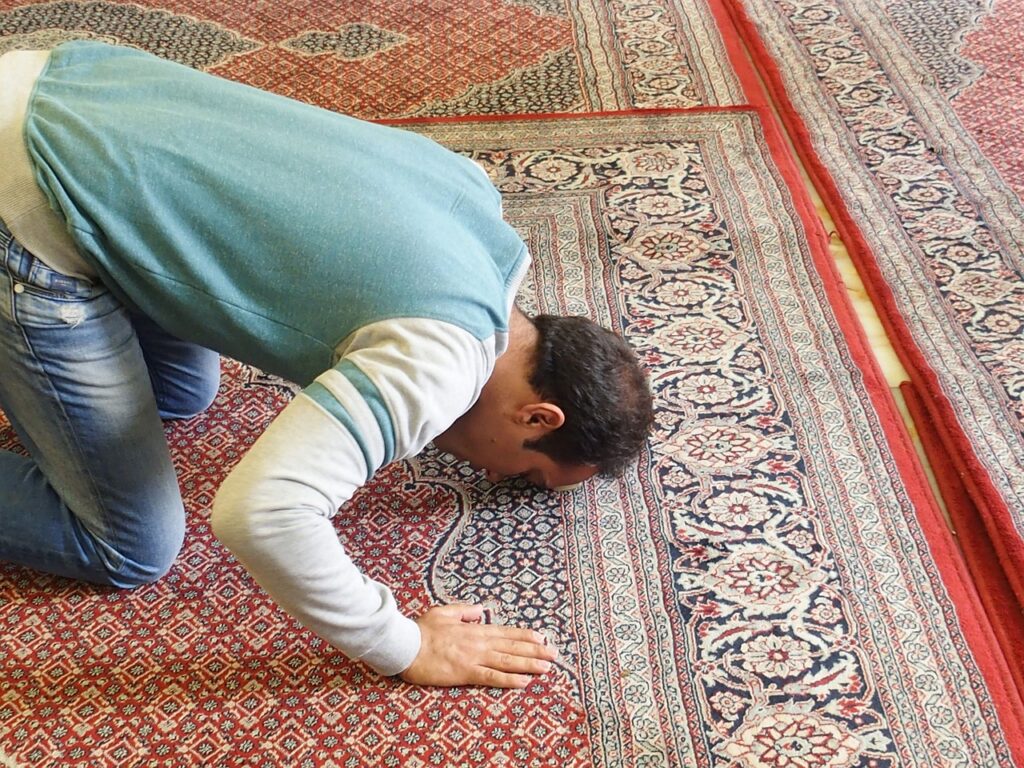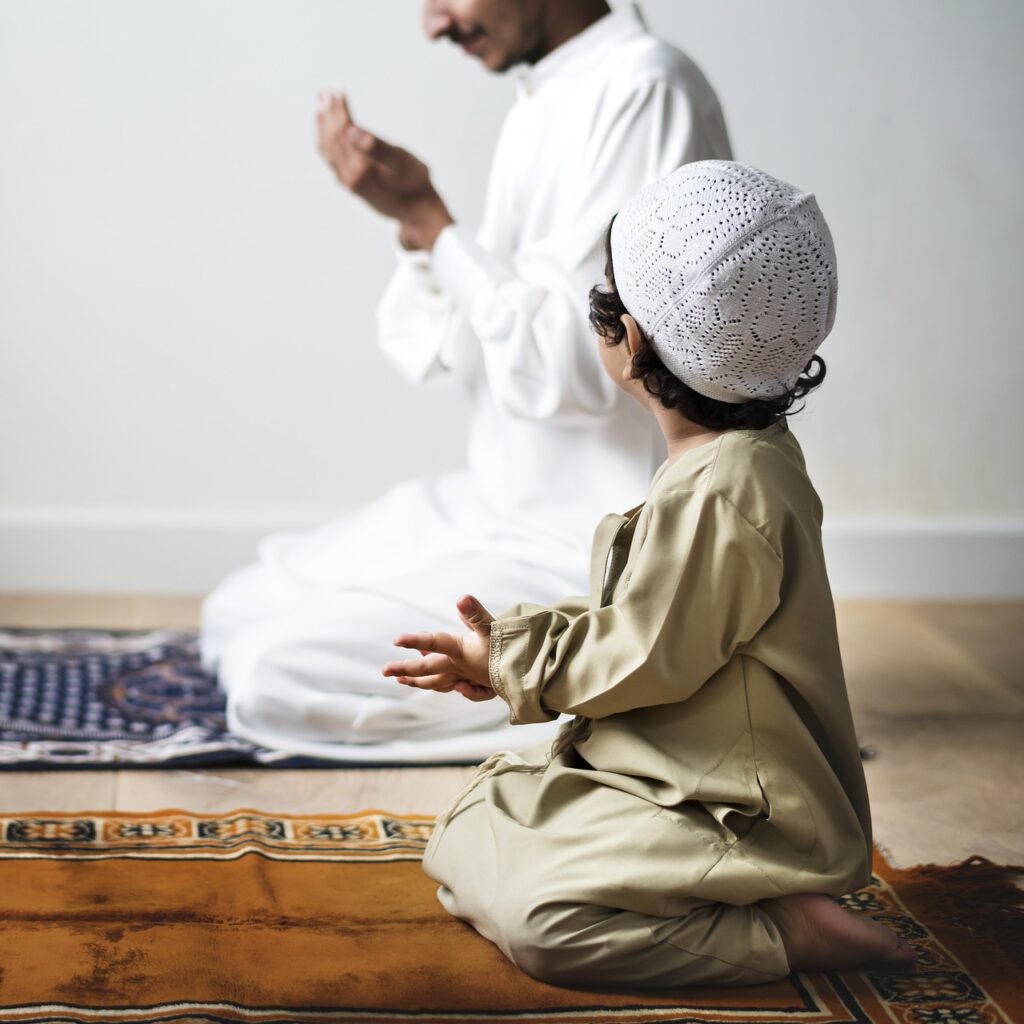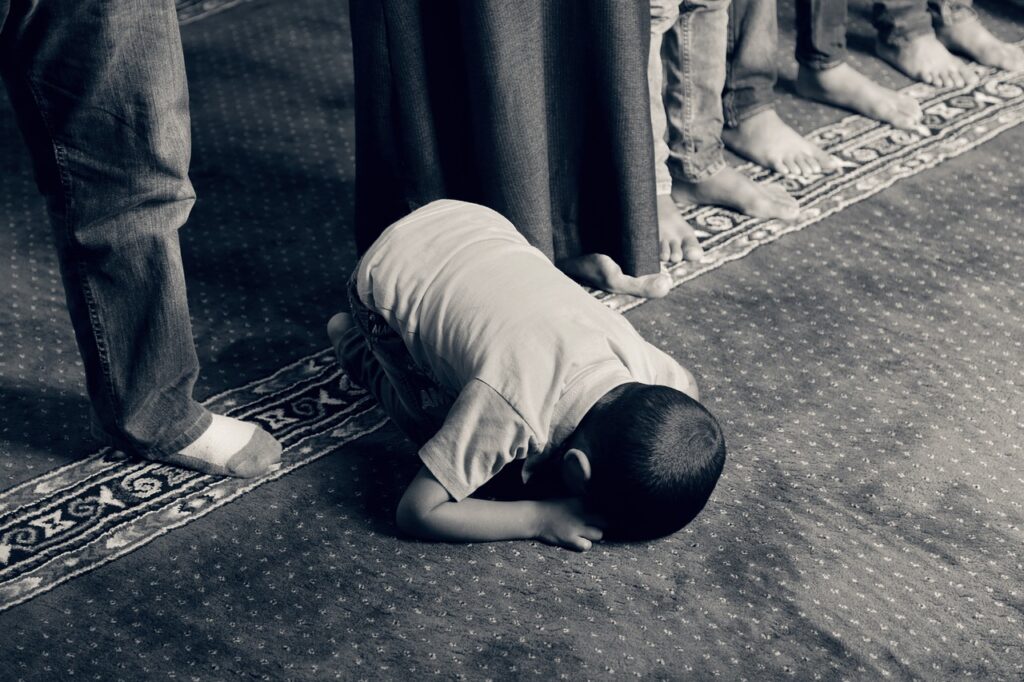The Essential Supplications – Dua of Ramadan

The Essential Invocations – Dua of Ramadan Introduction The holy month of Ramadan is a time when Muslims around the world engage in profound spiritual practices, with a focus on fasting, prayer, and making invocations (Duas). Duas are an integral part of Ramadan, offering a direct line to Allah and a way to seek guidance, […]
2024 Guide to Taraweeh Prayers at Home

2024 Guide to Taraweeh Prayers at Home: How to Perform, Involve Family, and Enrich Your Spirituality As the world continues to navigate through unprecedented times, traditions and practices have had to adapt. Ramadan, a month of fasting, reflection, and prayer, is a cornerstone of the Islamic faith. Among its cherished rituals is the Taraweeh prayer, […]
The Role of Parents towards Children in Islam

The Role of Parents towards Children in Islam In Islam, the role of parents towards their children goes beyond physical and emotional care; it extends to spiritual guidance and education. Parental responsibility is considered a form of worship, where acts of love, protection, and teaching are done with the intention to please Allah. 1. Spiritual […]
The supplications in prostration during prayer in Islam

Supplications in prostration during prayer in Islam Prostration (Sujood) in Islamic prayer holds great spiritual significance. Allah mentions in the Quran: “Prostrate and draw near [to Allah]” (Surah Al-‘Alaq, 96:19), emphasizing the value of Sujood as an act of humility and closeness to the Creator. Additionally, Prophet Muhammad (peace be upon him) said: “The servant […]
Invocation of Consultation in Islam – Dua of Salat al-Istikharah

Invocation of Consultation in Islam – Dua of salat al Istikharah The Salat al-Istikhara, often translated as “prayer of consultation,” is a distinct spiritual practice in Islam, deeply rooted in the quest for guidance from Allah, exalted by He. Making decisions is a daily part of life, yet there are moments when choices carry significant […]
Invocation – Dua Against Physical Pain in Islam

Invocation – Dua Against Physical Pain in Islam Du’as, or invocations, in Islam go beyond mere prayers; they represent an intimate dialogue between believers and Allah. The Quran underscores this spiritual connection, notably in the verse: “And when My servants ask you concerning Me, indeed I am near. I respond to the invocation of the […]
Invocation – Dua for Seeking All Good for Your Children

Invocation – Dua for Seeking All Good for Your Children Parents constantly seek ways to ensure the best for their children in terms of education, health, and spiritual development. In Islam, dua (supplication) is a powerful tool that allows parents to connect with Allah, seeking His guidance and blessings for their children. This article explores […]
Prayer and Ramadan: Foundations and Key Questions

Prayer and Ramadan: Foundations, Interactions, and Key Questions Introduction Prayer holds a central position in Islam, often referred to as the cornerstone of the faith. Quranic verses and Hadith emphasize its significance. For instance, the Quran states, “And establish prayer. Indeed, prayer prohibits immorality and wrongdoing…” (Surah Al-‘Ankabut, 29:45). Similarly, a Hadith reported by Imam […]
Ramadan 2024: Comprehensive Guide for a Month of Fasting

Ramadan 2024: Comprehensive Guide for a Month of Fasting, Prayer, and Renewal Introduction Ramadan, the fourth pillar of Islam, is a time of deep spirituality and purification to attain Allah’s satisfaction. The Prophet Muhammad’s hadith emphasizes its significance: “When Ramadan begins, the doors of paradise open, hell’s doors close, and devils are chained.” Quotation: “All […]
Ramadan 2024 Date: Spiritual Significance and Preparation

Ramadan 2024 Date: Spiritual Significance and Preparation As we approach Ramadan in 2024, understanding the spiritual significance and preparing for this sacred month becomes essential for Muslims around the world. Ramadan is a time of fasting, prayer, reflection, and community, deeply rooted in Islamic tradition. In this article, we will explore the importance of Ramadan, […]

